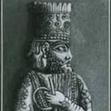Thomas Yaeger's Blog, page 18
March 18, 2017
Logical Modality in Classical Athens
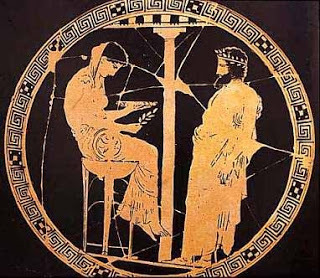
The following is a sketch of a paper on an alternative reading of the understanding of logical modality in ancient Greece. It isn't yet properly annotated and referenced, and is subject to significant revision in the near future. Treat it as a working paper. It discusses an issue which surfaced in SHB, but which was explored differently there. It may also be of interest to those who have read my book on Frazer, since what follows below discusses how Plato was understood before Frazer argued t...
Published on March 18, 2017 13:37
March 5, 2017
Thomas Yaeger's Books free at Smashwords during Ebook Week

Both of my books are available free (from Smashwords only) during the week through to March 11, 2017. The offer closes at midnight Pacific Time on the 11th. Use the coupon SFREE. After the ebookweek promotion closes, both books will revert to the standard price.
The images below link to the promotional catalogue, and the page they are (currently) on. If you can't find them, just use the Smashwords search option to search for Thomas Yaeger.


There is a static page about The Sacred History of Bein...
Published on March 05, 2017 06:33
March 3, 2017
Ocean and the Limit of Existence
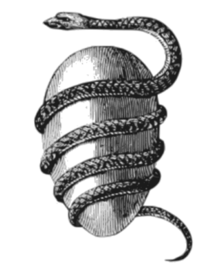
For the ancient Greeks, Ocean was imagined as a band which circumscribed the world like a gigantic river. This idea is deeply rooted in the intellectual model of the world which stretches back to the time of Homer. The Greeks did not know with any certainty that there was indeed an ocean which bounded the continents of Europe, Asia, and Africa, but the belief that it did so bound the land was an essential part of their picture of the world.
But the Greek concept of Ocean is so much more than t...
Published on March 03, 2017 02:26
March 2, 2017
Oannes and the Instruction of Mankind
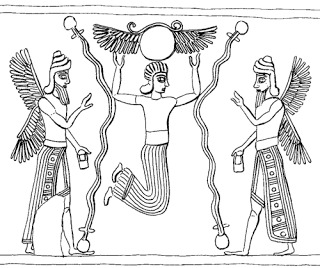
The Babylonian writer Berossus (possibly a Greek form of the name Bēl-uşur), took up residence in Athens, after having been a priest of Bel in Babylon in the late 4th century/early 3rd century B.C.E. He wrote a three volume work, Babyloniaka, unfortunately now lost, which was a study on the culture and history of Babylonia. Alexander Polyhistor made an abridgement of this work in the first century B.C.E., also lost. However this abridgement was available to the christian writer Eusebius...
Published on March 02, 2017 05:26
February 26, 2017
Being and Representation in Greece and Assyria
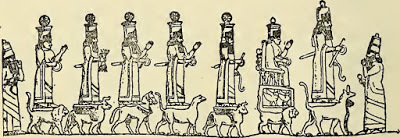
This is a discussion of the argument and significance of The Sacred History of Being, published in November 2015. The essential argument of the book is that, in both Greece and Assyria, knowledge was conceived to exist in Being itself, and as a consequence, all true knowledge was knowledge of the Divine. The cultural apparatus of both states can be understood to have been built on that conception.
***The argument of The Sacred History of Being is complex and necessarily discursive, sinc...
Published on February 26, 2017 05:50
February 16, 2017
Justice and the Harmony of the Soul
Justice is spoken of in Plato's Republicas one of the four cardinal virtues; the others being wisdom, courage and self discipline (prudence; temperance or moderation in older translations) [428e]. Justice however, proves to be more difficult to define than the other virtues for the participants in the discussion, and they find that its definition cannot be approached directly. Therefore they decide to define the other virtues fi...
Published on February 16, 2017 09:30
January 16, 2017
Synoikismos and the Origins of the Polis
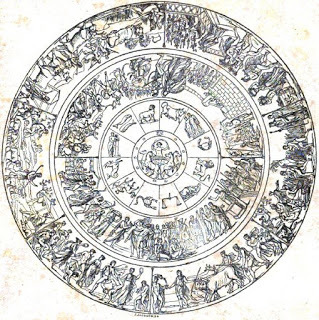 The definition of the polis, as understood by the Greeks themselves, and as transmitted to us, is far from clear; its origins and archaic development seem to be beyond recovery. We can say a few things with certainty: that it is the central institution of Greek society, and that there could be no politics without the polis. According to Aristotle, it is an entity which is not too large or too small, and other ancient sources have been taken to imply the necessity of the agora. In addition it...
The definition of the polis, as understood by the Greeks themselves, and as transmitted to us, is far from clear; its origins and archaic development seem to be beyond recovery. We can say a few things with certainty: that it is the central institution of Greek society, and that there could be no politics without the polis. According to Aristotle, it is an entity which is not too large or too small, and other ancient sources have been taken to imply the necessity of the agora. In addition it...
Published on January 16, 2017 06:08
December 26, 2016
The Enlightenment of David Hume

The Enlightenment agenda of the eighteenth century is based on the premise that human beings are rational beings in a causal world, which can be understood by the power of mathematics, physics, and the other sciences and disciplines which are based on human reason. The power of reason, it was assumed, is necessarily more powerful than all other forces which may exist in the world, and in the human mind. If this assumption was correct, then it should be possible not only to detect and de...
Published on December 26, 2016 09:06
December 5, 2016
The Living Animal: Aspects of the Function of Statuary among the Ancient Greeks
This is a scan of a research proposal which was completed on the 19th of December 1994, while I was living and working in Oxford. I have been on this path a long time. This was one of two proposals submitted, to different institutions. Neither of the proposals were funded, which isn't really surprising. If this case could be made successfully, it would up-end the history of philosophy, and place its origins in a cultic context. Which is the core argument of the book I published in 2015. ...
Published on December 05, 2016 13:26
November 26, 2016
Stone Circles, Phenomenology, and the Neolithic Mind
Some notes on the cultural context of Stone Circles, and the function of observations made with them.
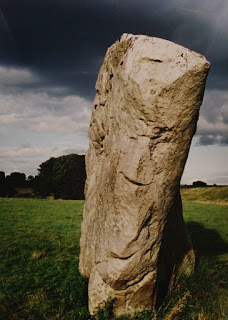
How could we ever understand the function of these objects, in the absence of any contemporary account? Archaeology and scholarship have been applied to the problem of these mysterious objects, but we are apparently still none the wiser. When it was first noticed that these objects were in some way astronomically aligned, that was a step forward, but in fact the observation did not advance us...
Published on November 26, 2016 03:19

